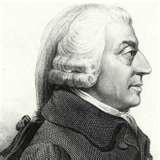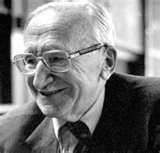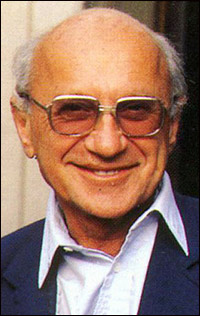Capitalism does not necessarily need employees so does not value them except as tools to produce or distribute goods.
Markets existed for thousands of years before “capitalism” emerged on the scene. Individual enterprise based on simple exchange of goods with or without monetary exchange did not really allow for enormous growth of individual wealth. This was especially true when governments (usually kings or similar rulers) did not allow the accumulation of individual ownership for the masses. Once individual liberty became acceptable any individual could engage in a private transaction and own property, capitalism spontaneously and slowly emerged or evolved as a response to individual desires to increase their personal wealth. Sometimes this was possible as an individual, but more often, it required a collection of individuals who pooled their resources. In modern terms, the people who pool their resources by sharing ownership are usually bound into a corporation. The resulting capitalist venture is all about acquiring and owning capital by controlling production, distribution, and sales. This results in a controlled exchange of wealth within the corporation and amongst corporations or individuals who own capital. Workers are only employed or paid if the work cannot be done by machines or horses. In essence they are not part of the capitalist system except insofar as they are a resource.
The hand-on-heart ideology expressed in many democracies today especially very recently in the US debates for Republican candidates for Presidential nominations is a remarkable demonstration of uncritical thinking wherein capitalism and democracy are inextricably linked. However it is wise to recall that even the most aggressive thinker on this topic (Milton Friedman, Capitalism and Freedom, 1962) was careful to state that “History suggests only that capitalism is a necessary condition for political freedom. Clearly it is not a sufficient condition.” How he came to think capitalism had anything to do with political freedom is a wonder. If anything at the back of his mind was a statement more like: “For capitalism to be most effective, it must be free of political interference.”
Free market is also a spontaneous self-organizing process that was made possible by the evolution of capitalism. In neither case was there a human mind designing the process. In act, both processes evolved by the actions of individual people reacting to local situations. As Kelley Ross (2003) writes: “Long before Darwin, Adam Smith (1723-1790)  captured the essence of a spontaneous order and a self-organizing system with his famous statement that the pursuit of self-interest by individual participants in the free market produces, as if by an “invisible hand,” public goods that are intended by no one. Charles Darwin could as easily have said that the mechanism of natural selection similarly produces as if by an “invisible hand” the development of the order, complexity, structure, and adaptation that we see in biological organisms.”
captured the essence of a spontaneous order and a self-organizing system with his famous statement that the pursuit of self-interest by individual participants in the free market produces, as if by an “invisible hand,” public goods that are intended by no one. Charles Darwin could as easily have said that the mechanism of natural selection similarly produces as if by an “invisible hand” the development of the order, complexity, structure, and adaptation that we see in biological organisms.”
Long after Adam Smith made this statement, Friedrich Hayek (1899-1992) tried to use the concept of spontaneous order to make a direct and homologous connection between evolution in the Darwinian sense and capitalism and free markets.  He and Ludwig von Mises (1881-1973) both argued that the blind mechanism of natural selection that defines the way species evolve in biological systems is no different in concept or mechanism than the spontaneous order evolved in capitalism and free markets wherein wealth is accumulated to create an entity in the marketplace. That is they cannot be planned and developed by some organizing design in advance. They both argued that it is impossible to have the information or power to plan for the complete balanced production, appropriate transportation, or required amounts in place at all times. This they argued is completely defined by free market prices: the commonly accepted principle of supply and demand. The two authors linked this to natural selection in biological terms. But they made a serious error. The time frame in which they were interpreting the action of economies was the time frame of ecology, not evolution. Natural selection as envisioned by Darwin and which is the controlling force governing evolution, essentially does not operate in the time frame of years, or decades. It operates over thousands of years.
He and Ludwig von Mises (1881-1973) both argued that the blind mechanism of natural selection that defines the way species evolve in biological systems is no different in concept or mechanism than the spontaneous order evolved in capitalism and free markets wherein wealth is accumulated to create an entity in the marketplace. That is they cannot be planned and developed by some organizing design in advance. They both argued that it is impossible to have the information or power to plan for the complete balanced production, appropriate transportation, or required amounts in place at all times. This they argued is completely defined by free market prices: the commonly accepted principle of supply and demand. The two authors linked this to natural selection in biological terms. But they made a serious error. The time frame in which they were interpreting the action of economies was the time frame of ecology, not evolution. Natural selection as envisioned by Darwin and which is the controlling force governing evolution, essentially does not operate in the time frame of years, or decades. It operates over thousands of years.
The key to natural selection in an evolutionary system is not the species, it is the genes. There is no pre-designed list of species, or genera or families. The only mechanism is natural selection and it is a blind mechanism with no predetermined end point. The fact that there were dinosaurs and are no dinosaurs today is a strict result of the application of natural selection on individuals in an ecological system and on the genetic makeup of individuals in an evolutionary system. Some survive when their attributes match the conditions and others whose attributes are less well-matched to the conditions do not survive. In evolutionary systems, the individuals that are most alike tend to get together and reproduce more individuals that are similar to themselves. These groupings of similar individuals are grouped in various levels of genetic categories, such as races, sub-species, species, genera, families, and so on. These genetic categories are entirely a construct of the human mind looking for patterns in nature. The categories are very stable over short periods of time, but over the long term, gradual changes occur as individuals survive or die in response to shifting external conditions, shifting internal characteristics, or mutations that work or do not work in the existing conditions.
Hayek, Smith and later Milton Friedman failed to understand the basic principles of natural selection and tried to apply their view of competition and evolution to capitalism and the free market. Charitably one could say they did this in ignorance of the consequences of their actions. In any case the possibly unintended consequences of the misapplication of an homologous system from biology to markets have been enormous; not because the systems do not work, but because the expectations that most people have of their operations are so incorrect. Had they examined critically the observed behaviour of natural systems in comparison to economic systems, they would have seen the comparison is not to evolution, but instead to ecology.
and tried to apply their view of competition and evolution to capitalism and the free market. Charitably one could say they did this in ignorance of the consequences of their actions. In any case the possibly unintended consequences of the misapplication of an homologous system from biology to markets have been enormous; not because the systems do not work, but because the expectations that most people have of their operations are so incorrect. Had they examined critically the observed behaviour of natural systems in comparison to economic systems, they would have seen the comparison is not to evolution, but instead to ecology.
The equivalent of an individual from an ecological system in a free market or capitalist systems is the entrepreneur (individual or capitalist). These are the units that survive or do not survive in capitalism or free markets. The entrepreneur might control all or just part of the production, distribution, and exchange of wealth elements of the market. Individuals in a economic system just like in an ecological system have a set of characteristics that cannot change markedly in the time frame of a corporation. To compete, the individuals use the best of their inherent abilities to make the best of the situations in which they find themselves.
Does any of this matter? In a subtle but extremely profound way, it really does matter. For example, if the individuals are removed from a biological species, there is no “species” left. Species do not compete with each other. The individuals contained within the species compete with each other and with individuals of other species.
Should we think of the employees who work for entrepreneurs or in corporations as the “individuals” in the same way as in a biological system? No. Removing the individuals from a species eliminates the species. If you eliminate all the individual employees from a corporation, by replacing them with machines for example, the corporation still exists and can flourish. But what is left? The entrepreneurs and capitalists are left in the corporations. So they are the “individuals” that compete in the economic systems.
What about the employees? Are they not individuals? Nope, not in a capitalist system. They are just packages of energy and skills – a resource to be used or not as convenient to a corporation.
So the lesson is: “Capitalism does not necessarily need employees so does not value them except as tools to produce or distribute goods.”
